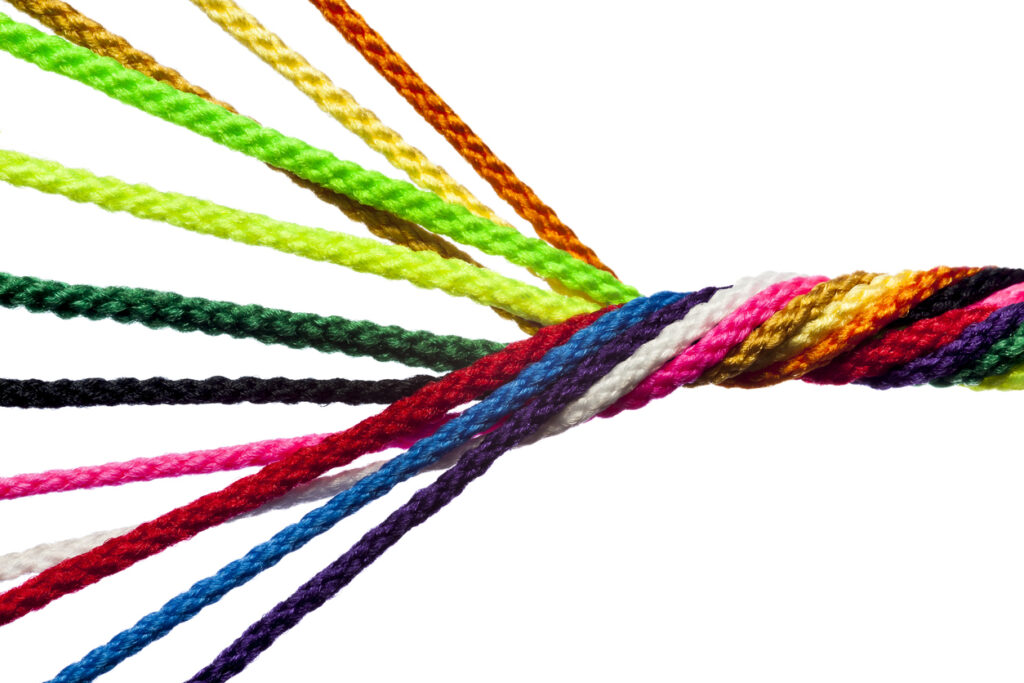Right now, as the world starts to return to some sort of normal (whatever that really means) we look to our leaders for direction, strength and maybe a sense of security. With substantial change on the cards for everyone, but still a gap in our diverse and inclusive organisations, who’s in control of setting out this revised landscape? And will it support or hinder diversity and inclusion within our organisations?
We as leaders need to change first, to see diversity as an asset, a strength, a genuine superpower.
Simple awareness is not a solution
I think everyone has seen enough research and articles confirming that classroom training, e.g. unconscious bias training, is not significantly effective in making an impact on the diversity within organisations. But if you haven’t (where have you been?) here is one reference in a recent Guardian article: “…there is currently no evidence that this training changes behaviour in the long term or improves workplace equality in terms of representation of women, ethnic minorities or other minority groups” and sometimes had unintended “negative consequences.”
It makes perfect sense. You cannot change people’s belief systems, culture or core processes (think recruitment) in a 3-hour session. It is way more fundamental than that. So why do we continue to waste money on this training? Is it so that organisations can be seen ‘to be doing something to improve D&I’? For as long as diversity is seen as a tick box activity, a KPI, something we ‘should’ do in organisations, nothing will change. So, I am here to change the narrative, the belief, the why.
Diversity within our organisations needs to be seen as an essential business asset, a competitive advantage that expands our perspectives, improves innovation and develops our inclusive leadership capabilities and culture.
Uncomfortable growth or easy stagnation?
When we have a problem to solve, face a new challenge or need to change, we look to the people around us, our friends, our teams, our peers, even our network. We seek input from ‘our trusted advisors’, who we have built relationships with over time, confirming that we trust their judgement. BUT what if this network is only validating what we already think, not offering any alternative or new perspectives or worse solutions that don’t work for everybody?
In a Forbes article on the benefits of cognitive diversity, Janine Schindler highlights: “There is no doubt that people feel comfortable surrounding themselves with others who have styles similar to their own. Unfortunately, when you get more of the same, what you end up with is … more of the same.”
To deal with the change ahead of us in 2021 and beyond, we as leaders need to change first, to see diversity as an asset, a strength, a genuine superpower. But we have to be aware that this is not going to be a comfortable journey. If it was easy, we wouldn’t be in this unbalanced place now, so let’s get ready to be uncomfortable!
Becoming an inclusive leader means the strongest impact you have comes not from what you think you should do, or what you are told to do, but from hearing what somebody needs.
We like people like us, it’s safe, non-challenging, validating and easy. But in this space there is no growth, no change and we therefore always get more of the same. If we tap into diversity superpower, we experience an opportunity for the best type of learning ever, where we experience a multitude of differing ideas, challenges of the norm, stimulated thinking, opening up possibilities, better connections, innovation, and contrast.
As Matthew Syed Consulting says: “Diversity of thought can feel uncomfortable at times, with conflicting ideas on how to do things and tension due to personal differences. But, managed well it can also lead to greater creativity, better decisions and ultimately stronger performance.”
The power of experiential learning
Within your organisations and networks, there will already be a mix of incredible people with a whole host of different experiences, perspectives, values, opinions, ages, cultures, abilities, expertise. What if we create a safe environment where we can explore all that is different?
Now is the time for experiential learning, where there is a clear intention for us to build our own personal and specific experiences to learn from. If we connect with someone outside of our normal network, by having conversations and building a connection with someone different (in a safe and structured way) it will enhance our understanding and knowledge and drive real change.
In Colin Beard and John Wilson’s book, ‘Experiential learning’, they refer to this kind of learning as “a sense-making process involving experiences that, act as the source of learning. These experiences actively immerse and reflectively engage the learner as a whole being.”
The inclusive leader
Becoming an inclusive leader means the strongest impact you have comes not from what you think you should do, or what you are told to do, but from hearing what somebody needs.
This means you need to learn to be happy with getting uncomfortable. Also start to build new relationships with people who are ‘not like me’. A good tip is to review your LinkedIn connections. What is the age, gender, race, industry, geographic split etc of your network – are you only ever seeking more of the same?
Ensure that diverse conversations are happening around the topics and projects that are most important to your business. Whose input are you currently seeking? Finally, seek support from outside your business – you cannot stimulate this change and new connections from inside the organisation, as I am afraid you are part of the current problem.
Interested in this topic? Read ‘How to make your L&D initiatives accessible to all‘.
Right now, as the world starts to return to some sort of normal (whatever that really means) we look to our leaders for direction, strength and maybe a sense of security. With substantial change on the cards for everyone, but still a gap in our diverse and inclusive organisations, who’s in control of setting out this revised landscape? And will it support or hinder diversity and inclusion within our organisations?
We as leaders need to change first, to see diversity as an asset, a strength, a genuine superpower.
Simple awareness is not a solution
I think everyone has seen enough research and articles confirming that classroom training, e.g. unconscious bias training, is not significantly effective in making an impact on the diversity within organisations. But if you haven’t (where have you been?) here is one reference in a recent Guardian article: “…there is currently no evidence that this training changes behaviour in the long term or improves workplace equality in terms of representation of women, ethnic minorities or other minority groups” and sometimes had unintended “negative consequences.”
It makes perfect sense. You cannot change people’s belief systems, culture or core processes (think recruitment) in a 3-hour session. It is way more fundamental than that. So why do we continue to waste money on this training? Is it so that organisations can be seen ‘to be doing something to improve D&I’? For as long as diversity is seen as a tick box activity, a KPI, something we ‘should’ do in organisations, nothing will change. So, I am here to change the narrative, the belief, the why.
Diversity within our organisations needs to be seen as an essential business asset, a competitive advantage that expands our perspectives, improves innovation and develops our inclusive leadership capabilities and culture.
Uncomfortable growth or easy stagnation?
When we have a problem to solve, face a new challenge or need to change, we look to the people around us, our friends, our teams, our peers, even our network. We seek input from ‘our trusted advisors’, who we have built relationships with over time, confirming that we trust their judgement. BUT what if this network is only validating what we already think, not offering any alternative or new perspectives or worse solutions that don’t work for everybody?
In a Forbes article on the benefits of cognitive diversity, Janine Schindler highlights: “There is no doubt that people feel comfortable surrounding themselves with others who have styles similar to their own. Unfortunately, when you get more of the same, what you end up with is ... more of the same.”
To deal with the change ahead of us in 2021 and beyond, we as leaders need to change first, to see diversity as an asset, a strength, a genuine superpower. But we have to be aware that this is not going to be a comfortable journey. If it was easy, we wouldn’t be in this unbalanced place now, so let’s get ready to be uncomfortable!
Becoming an inclusive leader means the strongest impact you have comes not from what you think you should do, or what you are told to do, but from hearing what somebody needs.
We like people like us, it’s safe, non-challenging, validating and easy. But in this space there is no growth, no change and we therefore always get more of the same. If we tap into diversity superpower, we experience an opportunity for the best type of learning ever, where we experience a multitude of differing ideas, challenges of the norm, stimulated thinking, opening up possibilities, better connections, innovation, and contrast.
As Matthew Syed Consulting says: “Diversity of thought can feel uncomfortable at times, with conflicting ideas on how to do things and tension due to personal differences. But, managed well it can also lead to greater creativity, better decisions and ultimately stronger performance.”
The power of experiential learning
Within your organisations and networks, there will already be a mix of incredible people with a whole host of different experiences, perspectives, values, opinions, ages, cultures, abilities, expertise. What if we create a safe environment where we can explore all that is different?
Now is the time for experiential learning, where there is a clear intention for us to build our own personal and specific experiences to learn from. If we connect with someone outside of our normal network, by having conversations and building a connection with someone different (in a safe and structured way) it will enhance our understanding and knowledge and drive real change.
In Colin Beard and John Wilson’s book, ‘Experiential learning’, they refer to this kind of learning as “a sense-making process involving experiences that, act as the source of learning. These experiences actively immerse and reflectively engage the learner as a whole being.”
The inclusive leader
Becoming an inclusive leader means the strongest impact you have comes not from what you think you should do, or what you are told to do, but from hearing what somebody needs.
This means you need to learn to be happy with getting uncomfortable. Also start to build new relationships with people who are ‘not like me’. A good tip is to review your LinkedIn connections. What is the age, gender, race, industry, geographic split etc of your network – are you only ever seeking more of the same?
Ensure that diverse conversations are happening around the topics and projects that are most important to your business. Whose input are you currently seeking? Finally, seek support from outside your business – you cannot stimulate this change and new connections from inside the organisation, as I am afraid you are part of the current problem.









